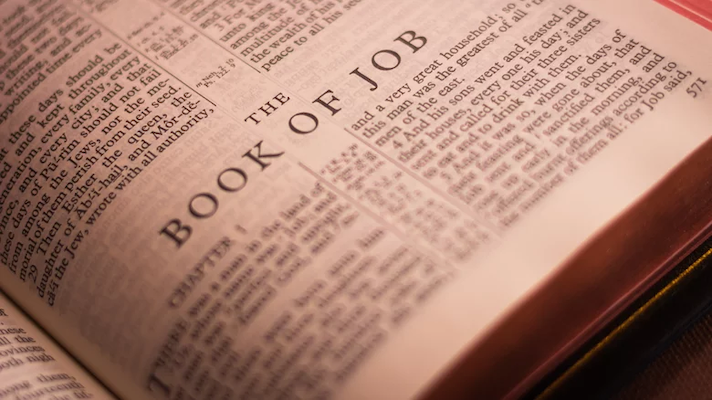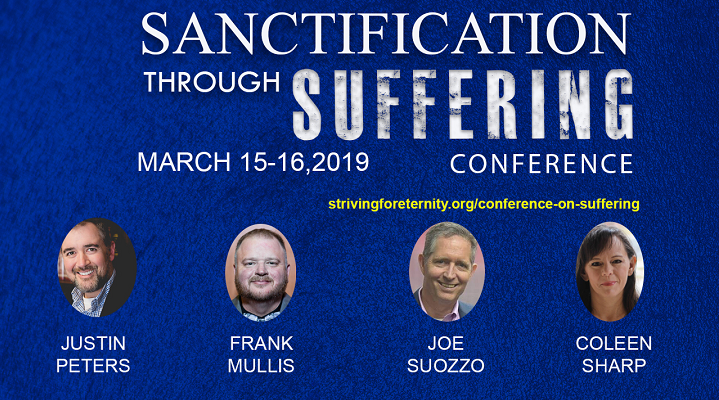Did you know that Satan and Job asked God a similar question?
Of course, Satan’s questioning was meant for evil, but God permitted it for Job’s good.
Nevertheless, when we probe the question(s) that Satan and Job directed toward the LORD, we see very similar pursuits, but from two different perspectives. And both confront us with the challenge: Do we fear God for nothing?
Satan’s Question
When Satan asked God, “Does Job fear God for nothing,” it was to challenge the righteousness of Job (Job 1:9). Both God and Satan knew that Job was an innocent and blameless man. Even Job knew this! And defended himself against his friends who were “miserable comforters” (Job 16:2; 27:5-6). He even repeatedly defended his innocence before God (Job 10:5-7).
But the pressure points where Satan challenges Job’s faithfulness are the very same areas we all often value: health and wealth. This is why the Prosperity Gospel so appealing! Because it is human nature to want a life free of symptoms, trials, and financial burdens. So as long as God is blessing us in these areas, we are happy to serve him. I’m mean, we don’t serve God for nothing, right? But, as so often happens, when God doesn’t give us what we want, we can quickly doubt Him. To the point that we can even question His very existence!
So Satan wasn’t necessarily unwise to choose these categories to test Job’s character. He knows the inclinations of our nature better than we do, and is very cunning to hit us where it hurts the most. But as Job points out, we should be ready to accept both evil and good from the hand of God (Job 2:10). And whatever the LORD gives, the LORD can take away. Therefore, we should bless and glorify Him regardless of our earthly circumstances.
However, aside from the obvious implications of Satan’s question, we turn our eyes to Job, who asks a very similar question, but for a different reason.
Job’s Question
In the beginning, Job seems to accept tribulation from God, but as suffering progresses and marinates for a while, like we all do, he begins to ask himself the hard, and seldom answered question: “Why? Why did this happen to me? Am I not righteous? Don’t I live blamelessly before Him? Don’t I seek to live a godly life that loves and cherishes His commandments? I know I’m not morally perfect. But why?”
Job, like Asaph, wonders, “Have I cleansed my hands and heart in vain?” (Psalm 73:13). And it is in this that we begin to see how Job’s question is similar to Satan’s.
Because of the greatness of his suffering, Job wonders how could this happen if he is righteous? Even more than this, how could this happen if God is righteous!? And Job’s friends push him down this rabbit hole even further, accusing that he MUST have sinned, because God is just and doesn’t just bring these kinds of calamites upon the righteous. So confess your sins Job! And make peace with God already! (Job 22:21)
Job understandably defends his innocence (though he often wrongly challenges God when he does so; c.f. Job 23). But again, we ask, “Does Job fear God for nothing?” Though he doesn’t care about health and wealth, he does care about his integrity. He also cares about the righteous revelation that God is just. But right now, his theodicy being challenged. So what gives LORD?
Greater Redemption & Revelation, Not Retribution
You see, Job’s problem was not in the natural things, but in the spiritual. The revelation of who God is and how He uses suffering was merely retributive in nature, and not redemptive. Meaning, Job served God faithfully and blamelessly because he was acting in accordance with the revelation that God is just. Rightly so! And there’s nothing wrong with this. But God is inviting us to more intimate revelation about who He is, and His greater redemptive purposes through His sovereignly orchestrated suffering in our lives.
In some sense, Job didn’t fear God for nothing? In some sense, none of us do. Before we were Christians, we all felt the burden and weight of our sin. And, through the conviction and drawing of the Holy Spirit, our hearts began to hunger and thirst for the Fountain of Everlasting Life – Jesus Christ! We came to Christ to obtain life, righteousness, and peace with God the Father. And now we serve our Triune God, not by works, but through faith. But do we fear him for nothing? Hopefully now we can see the multi-faceted way this can be answered.
But another classical problem Job has, among the multitude of questions he cries out about, is, Why serve God if the wicked do not experience suffering like the righteous do? Just like Asaph in Psalm 73, Job wonders what’s the point of being blameless in the first place? “If God is going to persecute me and make me suffer like this, and yet allow the wicked to prosper, what is the point of being righteous?” Job asks (Job 21) In essence, Job is posting the all important question, “Do I fear God for nothing? Why I should I have to suffer when I’ve done nothing wrong!”
Our Question
There are a great many Saints who have desperately cried out with this question. This sin-corrupted world provides no shortage of opportunities to challenge our theology, worldviews, presuppositions, and even eschatology, by seemingly “meaningless” sufferings. Yet, in the midst of our sufferings, we, like Job, discover why do we fear God? Is it for nothing? Is it for something? Is it for the right or wrong reasons? Is it for spiritual reasons? Or is it for health and wealth? If He were to take what is most precious to you, would you still fear Him? If He were to prosper the wicked before your very eyes, and keep you from having those things, would you still praise Him?
Here’s one that I think will hit closer to him. If the LORD were to raise up wicked rulers, governments, or politicians, and saw fit that through these you and your family would experience greater oppression than previous generations, and sovereignly decided that you would never see the fall of such an empire in your lifetime, and would inevitably die underneath such oppression, would you still serve Him, love him, and fear him?
Conclusion
I pray that this short snapshot into Job’s suffering would provoke us to ask ourselves constantly the ever-probing question, “Do We Fear God For Nothing?” For some of us, we may, like Peter, only discover the true answer to that question when persecution hits us. Or, like Job, when we suffer immensely through illness and/or financial hardship. But no matter how we discover just how genuine our reasons are for fearing God, let this question prepare our hearts for the days ahead.
-Until we go home
“I know that [God] can do all things,
and that no purpose of [His] can be thwarted.
– Job 42:2





Robert, thank you very much for the kind words, brother. That sincerely means a lot to me that your spirit…